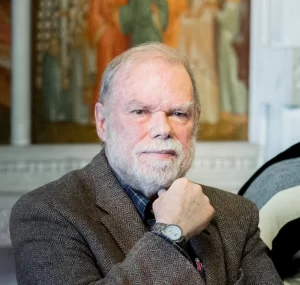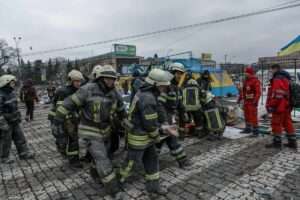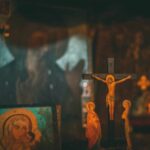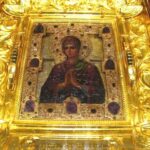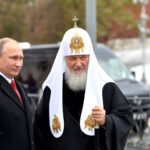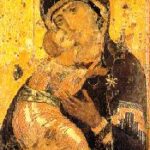Who is St Ilya Fondaminsky?
I'm curious about Ilya Fondaminsky and how he came to be included in the canonization. Just by his date of death, it would appear he passed away before St. Mother Maria Skobtsova and company were arrested. What do you know about him?
On the web site of Amherst University, in a section devoted to the papers of Vladimir Zenzinov, there is this biographical summary:
Ilya Isidorovich Fondaminsky (pseudonym Bukanov), political figure and publisher, was born in Moscow in 1881 and died at Auschwitz on November 19, 1942). From 1900 he studied philosophy at Berlin and Heidelberg Universities and in the spring of 1902 was arrested at the Russian border for transporting illegal literature into Russia. In 1905 he became a member of the Moscow Committee of the S.R. (Socialist-Revolutionary Party). In 1906 he fled to Paris, where he became good friends with Z. Gippius, D. Merezhkovsky, and B. Savinkov. He returned to Moscow in April 1917 and as a Commissar of the Provisional Government opposed the Bolsheviks. In 1919 he emigrated to France, and in Paris published a variety of religious and philosophical journals. Although he converted to Christianity in 1941, he was deported to Germany and died in a concentration camp in 1942.
In his biography of Mother Maria Skobtsova, Pearl of Great Price, Fr Serge Hackel writes that Fondaminsky was one of the distinguished people who gave occasional lectures at the Sunday afternoon gatherings at the house on rue de Lourmel (along with Berdyaev, Bulgakov, etc.).
In 1940, in a discussion at Fondaminsky's apartment in Paris, Mother Maria spoke of her awareness that these were eschatological times. "Do you not feel that the end is already near, that it is at hand?" [Hackel, p 99]
For many years he was haunted by Christ and drawn to the Orthodox Church. He regularly attended the French-language liturgies celebrated by Fr Lev Gillet at the chapel adjacent to Mother Maria's house of hospitality on rue de Lourmel. He explained his hesitancy to be baptized on the grounds that he was unworthy, though Hackel also mentions the factor of loyalty to his wife, an unbaptized Christian who had died in 1935.
Their mutual friend Fedor Pianov remarked, "It is difficult to say who had the greater influence on whom, Mother Maria on him or him on Mother Maria." [Hackel 105]
Already an Orthodox Christian in his faith, he played a major role in the founding of Orthodox Action in 1935.
In 1941 he was in the first wave of Russians arrested by the German invaders.
Though a catechumen for years, Fondaminsky was finally baptized and chrismated at the makeshift Orthodox chapel at the camp at Compiegne. Afterward he wrote to a friend that he was "ready for anything, whether life or death."
Following treatment of a gastric ulcer, he had the possibility to escape to the zone of France not under German occupation and from there could have escaped to the USA, but he decided it was better to share the fate of those who had no such opportunity, especially his "kinsmen according to the flesh."
The theologian Georgi Fedotov writes: "In his last days he wished to live with the Christians and die with the Jews."
"It is out of dough like this that saints are made," commented Mother Maria, weeping as she read his last letter.
He was sent to Auschwitz where he died on the 19th of November 1942.
Jim Forest, 25 May 2004
The main entries about him in Serge Hackel's book are on pp 103-106.

